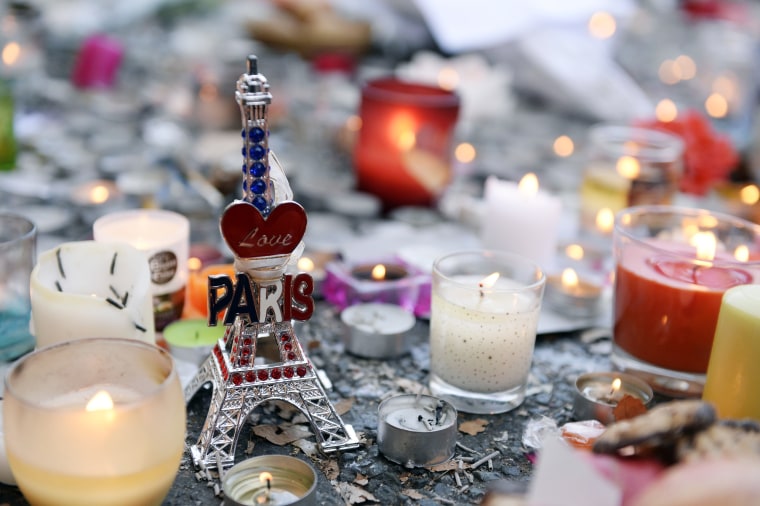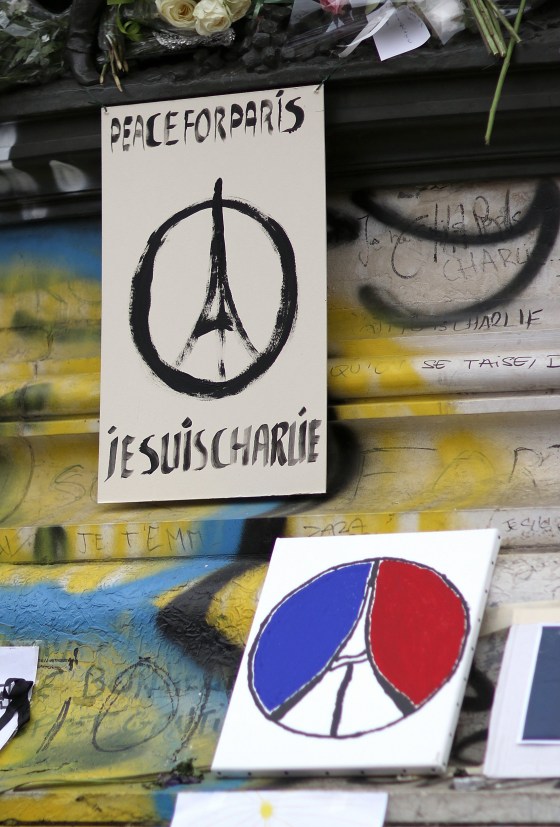
There is no doubt that the terror attacks that took place Friday in Paris, which killed 129 people, wounding hundreds more, was a devastating tragedy. The world seemed to stop and stand in solidarity with France.
Hashtags like, #PrayforParis and #PrayforPeace were trending on Twitter, as was Facebook’s rush to create a profile picture option, allowing users to alter their current pictures with a translucent French flag to show their support. They also immediately rolled out their “safety check” locator that was initially designed for natural disasters for people to check-in and let their followers know they were safe. A Facebook spokesperson said, “Communication is critical in these moments both for the people there and for their friends and families anxious for news.”
To be clear, all of the sweeping support for France as they are reeling from tragedy is wonderful to see—but I’m wondering how far our global compassion actually reaches.
We should absolutely mourn as global citizens when tragedy strikes—but whom we mourn shouldn’t be based on any likeness to our lives and us.
During the same week as the assault on Paris there was a twin suicide bombing in Beirut, Lebanon that killed 43 people and injured hundreds more. In April, 147 college students were killed in a terror plot at a university in Garrissa, Kenya, which was carried out by another Islamist terror group, al-Shabaab. Last year in Nigeria Islamist terror group Boko Haram murdered 7,000 people.
Reports indicate that an estimated 200,000 Syrians have been murdered since civil war broke out in the country in 2011, creating one of the most massive refugee crises we’ve seen in the 21st century. These are just a few instances of the numerous acts of terror that for many countries has become their new normal, while the world seems to look the other way.
In an article on the Australian news site, newmatilda.com, journalist Chris Graham gets to the heart of what is referred to as “selective compassion”, he writes:
…How do we explain our identification with French suffering and our apparent indifference to Lebanese suffering? Or more to the point, how do we explain our indifference to the suffering of people we perceive as different, Lebanese, African, Hazara, Muslim…. Brown people.
Jonathan Cook, an award-winning British journalist based in Nazareth, Israel, went even further in his analyses of selective compassion as it pertains to Europeans.
As Europeans we have always viewed ourselves as fully human, but seen those in the Middle East and much of the rest of the world as slightly less than human, and not quite as deserving of our sympathy. It is such feelings that allowed Europe to colonize, abuse and exploit brown people.The historic racism that we Europeans are all too ready now to acknowledge, and that we understand fed western colonialism, is not a thing of the past. It still thrives deep in our souls. Where once we felt the white man’s burden, we now feel his outrage. Both depend on the same arrogance, and the same ascription of lesser human qualities to those we see as different from us.
The ability of nations to occupy, demoralize, imprison and kill countless people is based on the belief that “those people” are not “like them” they are indeed “less human”. This is the rationale that is provided by terrorist organizations and military regimes alike to get others to do what is necessary to secure power, liberty, revenge etc.
So, it should come as no surprise that while we hang flags at half mast, update profile pictures and retweet hashtags for #France, we neglect the tragedies that are unfolding in other nations that don’t look like us -- and by “us” I mean white and European.
We have been programmed not only in America but also within the entire west that the Middle East (except of course Israel) is our enemy. They are the “axis of evil”. The tragedies that take place in countries like Lebanon, Syria and African nations like Nigeria and Kenya don’t really matter because those people experience violence and terror all the time— because they’re not as “civilized” as western nations.
What’s even more frustrating than our selective compassion is our collective obliviousness to the root cause—racism, combined with Islamophobia.
Soon, the hashtags will fade and the profile pictures will remove their French filters and the world will move onto something else. We should absolutely mourn as global citizens when tragedy strikes—but whom we mourn shouldn’t be based on any likeness to our lives and us.
Our grieving should instead be based on our common humanity, and the belief that no one regardless of their geographic location, religion, race or any perceived “otherness” should have to live in fear and their everyday terror be something that we can collectively select to ignore.

